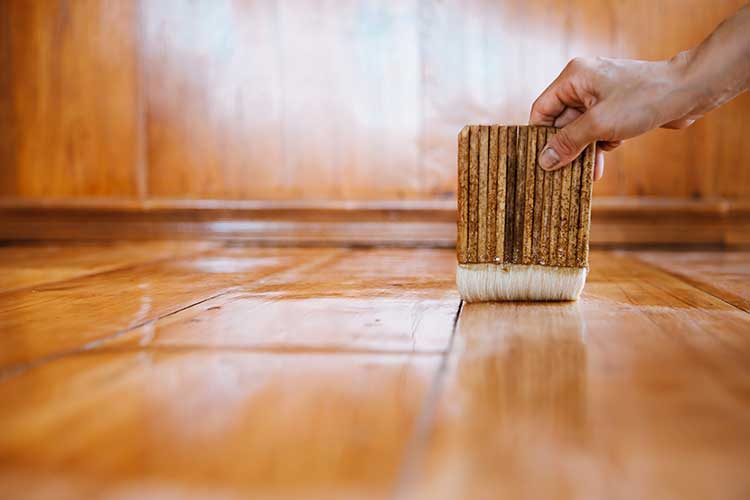
Do you have a hardwood floor at home and wished that it would last for many more years? Then you need to add a layer of polyurethane to protect it! But, the question is, which type of polyurethane? If you’re deciding between water-based vs. oil-based floor finish, stick around for more information!
In this blog, we’ll talk about the pros and cons of each of these finishes. Before you make a choice, you’ll have to consider your budget, needs, and preferences.
Also, it’s essential that you know the type of hardwood floor that you have. This is because each type of finish works well with certain kinds of hardwoods. So, keeping all these things in mind, let’s continue with the blog!
Learn the Pros and Cons of Water-Based and Oil-Based Floor Finishes
If you have a hardwood floor at home or in your business, then you need to add polyurethane every once in a while. We recommend this especially for high-traffic areas or rooms.
You may have never done this to your floors, and that is why they look too worn out. So, it’s time you read why you should add this protective coat to your floors.
The advantages of using polyurethane are:
- Protects floors from moisture, mold, and mildew
- Slows down the wear and tear
- Makes maintenance easier
- Maintains the floor’s appearance
- Protects floors from food spills and drops
For all these reasons, it is a must that you use polyurethane in all your hardwood floors. Also, it is a very important step in any hardwood floor refinishing project!
Now, the dilemma is water-based vs. oil-based floor finish. Which one is better? What is the best one for my hardwood floor? Which one costs less? Are they both durable?
We will answer all these questions next. So, keep reading our blog to learn which floor finish to choose!
Floor Finish Color
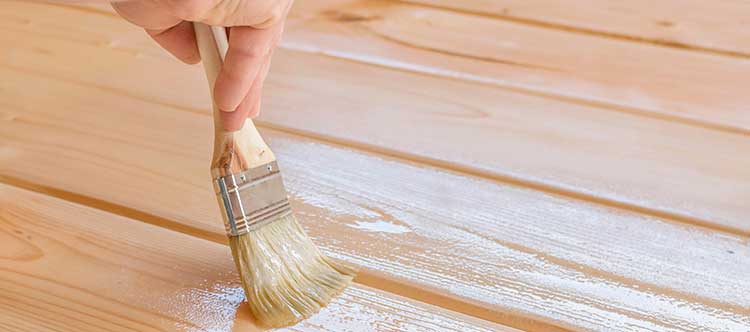
An important factor to keep in mind when choosing a polyurethane is the color of your hardwood floor. This is because oil-based poly will darken your wood’s color over time. But, water-based poly is clean and remains clear throughout your floor’s lifetime.
If you want your hardwood floor to maintain its natural color, then we recommend water-based polyurethane. This can work for hardwood floors that are white, gray or any other lighter color.
For darker or yellowish hardwood floors, you can opt for oil-based polyurethane. As time goes by, your floor will darken and get an amber tone.
In the end, it all depends on what your preferences are. But, it’s important to remind you that whatever poly you choose, you should apply a high-quality product. As a result, you’ll get a smooth finish that will last for several years.
Water-Based vs. Oil-Based: Which Is More Durable?
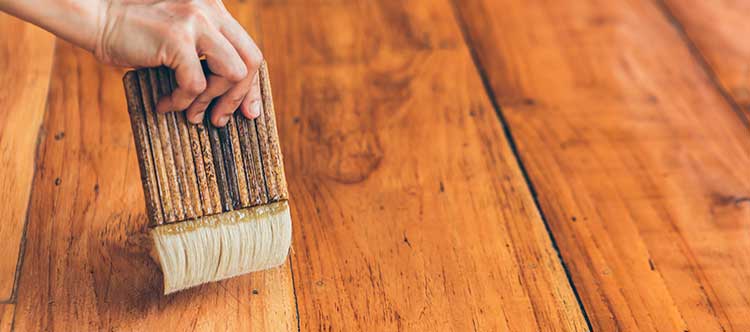
This is one of the most asked questions when deciding polyurethane to use. There are several opinions about this, but it all depends on what your specific needs are.
Water-based poly is a thinner product but has a harder coating. Oil-based poly is a thicker product but it’s softer. These characteristics bring different benefits to your unique wood floor. For that reason, we emphasize on knowing the type of floor you have as well as your needs.
Also, you need to consider where your hardwood floors are. If your wood floor is in a high-traffic area, then we recommend oil-based poly. This is because of its thickness, and as we said above, water-based poly is thinner. As a result, an oil-based finish will protect the floor from scratches.
On the other hand, a water-based finish is better for rooms where you have heavy furniture. Since oil-based poly is softer, it is more prone to dents. So, in this case, water-based poly is a better choice for its harder coating.
So, as we’ve been saying, you must know the type of hardwood floor you have as well as the room where it is. Then, you’ll be able to make a decision regarding which polyurethane to use!
Floor Finish Cost
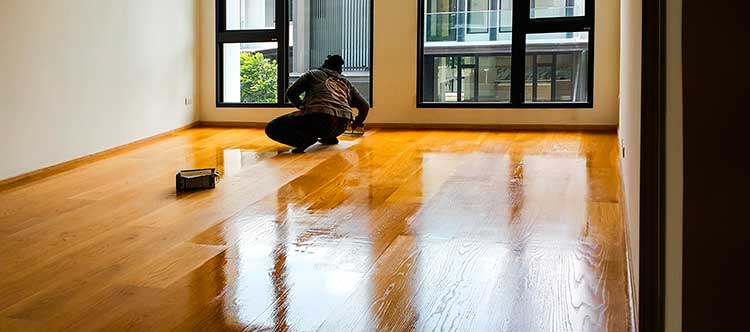
When you’re on a budget, you definitely need to choose oil-based poly. A water-based floor finish is more expensive than an oil-based one.
Water-based products can be two to three times more expensive than oil-based products. So, take into consideration your budget and needs when making this decision.
When buying a water-based finish you must beware of those “cheaper” products. If you find a really cheap water-based poly, then it may be that it is not high-quality.
As you’re considering the cost of each type of floor finish, you must take into account the durability factor that we discussed above. Based on that, you’ll be able to make a decision about which cost is better for you.
Drying Times and Smells
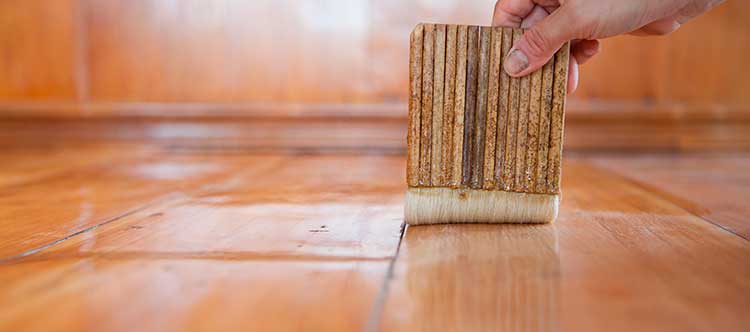
If you’re not a patient person, then we don’t recommend oil-based floor finish. This is because it takes longer to dry than water-based poly. So, you would be better off with a water-based coat if you need to finish your flooring project quickly.
Since water-based poly is thinner, you can add several coats in one day. As a result, you’ll be able to use that room after a couple of hours.
On the other hand, oil-based poly needs several hours of drying time between each coat. So, you won’t be able to use the room where you’re applying it for several days.
Regarding smells, a water-based finish will be your best option if you want to avoid strong odors. Water-based poly has very little smell. Also, since it dries faster, it’ll be safer for you and your family.
Oil-based poly has a much stronger smell. So, when applying this finish to your hardwood floor, you must wait a couple of days or avoid entering that room.
In the end, if you’re deciding between a water-based vs. oil-based floor finish, it all depends on your preferences. You will need to consider each factor carefully and see which one is more beneficial for you.
But, whatever type of floor finish you decide to use, be careful to choose high-quality products. If not, then you could end up harming your hardwood floor.
